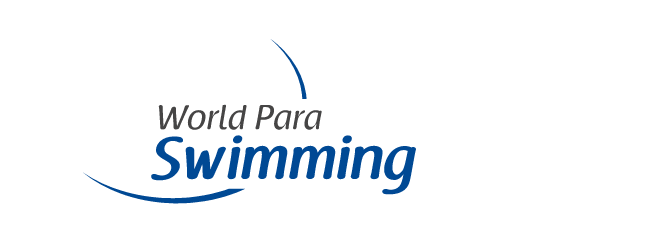Smetanine Targets Four Gold Medals in Berlin
06 Apr 2011French swimmer David Smetanine, a two-time Paralympic champion and holder of three world titles has warned his rivals he is targeting four gold medals at July’s International Paralympic Committee (IPC) Swimming European Championships in Berlin, Germany.
The 37 year old from Grenoble, France, will be one of nearly 500 swimmers from 40 countries in Berlin between 3 to 10 July for what will be one of the last major gatherings before the London 2012 Paralympic Games.
And if Smetanine is to achieve his dream of four gold medals in one then he will need to improve on the bronze he won last August at the IPC Swimming World Championships in Eindhoven, the Netherlands.
Speaking to www.paralympic.org, the IPC’s website, David Smetanine said: “I don’t know how it is going to go in the 50m backstroke as there is a Czech swimmer Arnost Petracek who beat me in Eindhoven but I will be looking for gold in the three freestyle disciplines and maybe a fourth in the backstroke.
“I beat Arnost in the short course Championships and also the last Europeans so who knows.”
It is not just gold medals that Smetanine has in his sights in Berlin should he be selected for the French team, it’s also records. Currently he holds the European records in 50m Freestyle and Backstroke, whilst his rival, the Spaniard Richard Oribe who he is likely to race against in Berlin, holds the World records for 100m and 200m Freestyle.
David Smetanine said: “I would like to smash my European 50m record first (37.79 seconds), because the World record in the 200m for example was when we were swimming in full body suits and Richard Oribe took it down to 2:55.81.
“I think a European record should also be possible in the 50m backstroke as well. I was very close to the record at the national trials recently so I think I can certainly do something in Berlin.”
A strong able bodied swimmer, Smetanine had aspirations of one day representing France at the Olympic Games until a car crash in September 1995 left him a partial quadriplegic with some degree of paralysis in all limbs, mostly his legs, and a loss of sensation in his hands.
Although swimming was part of his rehabilitation, he had not considered Para-Swimming as a sport until 1996 when his employer, the Mayor of Grenoble, invited him to a welcome home function for swimmers returning from the Atlanta 1996 Paralympic Games.
“It was quite hard to swim at first as I used to be a breaststroker and could no longer feel my legs. So I decided to start swimming freestyle and backstroke, something which was easier for me.
“I’d been talking to my coach who knew I was trying to swim again and not doing too well and he said to me ‘why don’t you swim harder and do it more than just for your rehabilitation, why not prepare for the next Games which are in Sydney in 2000?’
“So I started to swim more. However, the moment I decided to think about a real career in Paralympic Sport was around 1999 or 2000 just during the trials for the Sydney Games.
“I didn’t qualify for them because I was not good enough. I realized then that the level was very high, very difficult to achieve so I knew I needed to do a lot more training to ensure I would qualify for Athens 2004.”
At his first Paralympic Games Smetanine took bronze in the 50m Freestyle, a medal he describes as feeling like a gold. He followed this up two years later with two silvers in the 100m and 200m Freestyle at the 2006 IPC Swimming World Championships in Durban, South Africa.
It was not until the Beijing 2008 Paralympic Games where he got to stand top of the podium for the first time after winning two gold medals in the 50m and 100m Freestyle as well as silver in the 200m Freestyle and 50m Backstroke.
Last year his impressive form continued with three world titles in Eindhoven and the Frenchman, who is also a member of the IPC Athletes’ Council is now training hard for further success in Berlin.
David Smetanine said: “I’m training about 23 hours per week at the moment. This is made up of eight or nine sessions in the water which are up to two hours long and two hour long gym sessions per week.
“On top of that I have two physio sessions for stretching so all in all it’s about 25 hours per week dedicated to swimming.”
Amongst other swimmers likely to compete in Berlin alongside Smetanine for the 180 plus gold medals are Ukraine’s Maksym Veraska, the fastest Para-Swimmer in the world and the fastest female swimmer in the world Russia’s Oxana Savchenko.
The event will take place at Berlin’s Europasportpark, a venue which has already hosted multiple aquatic events, including the International Open German Swimming Championships in previous years.

 Facebook
Facebook
 Instagram
Instagram
 Twitter
Twitter
 Youtube
Youtube
 Tiktok
Tiktok
